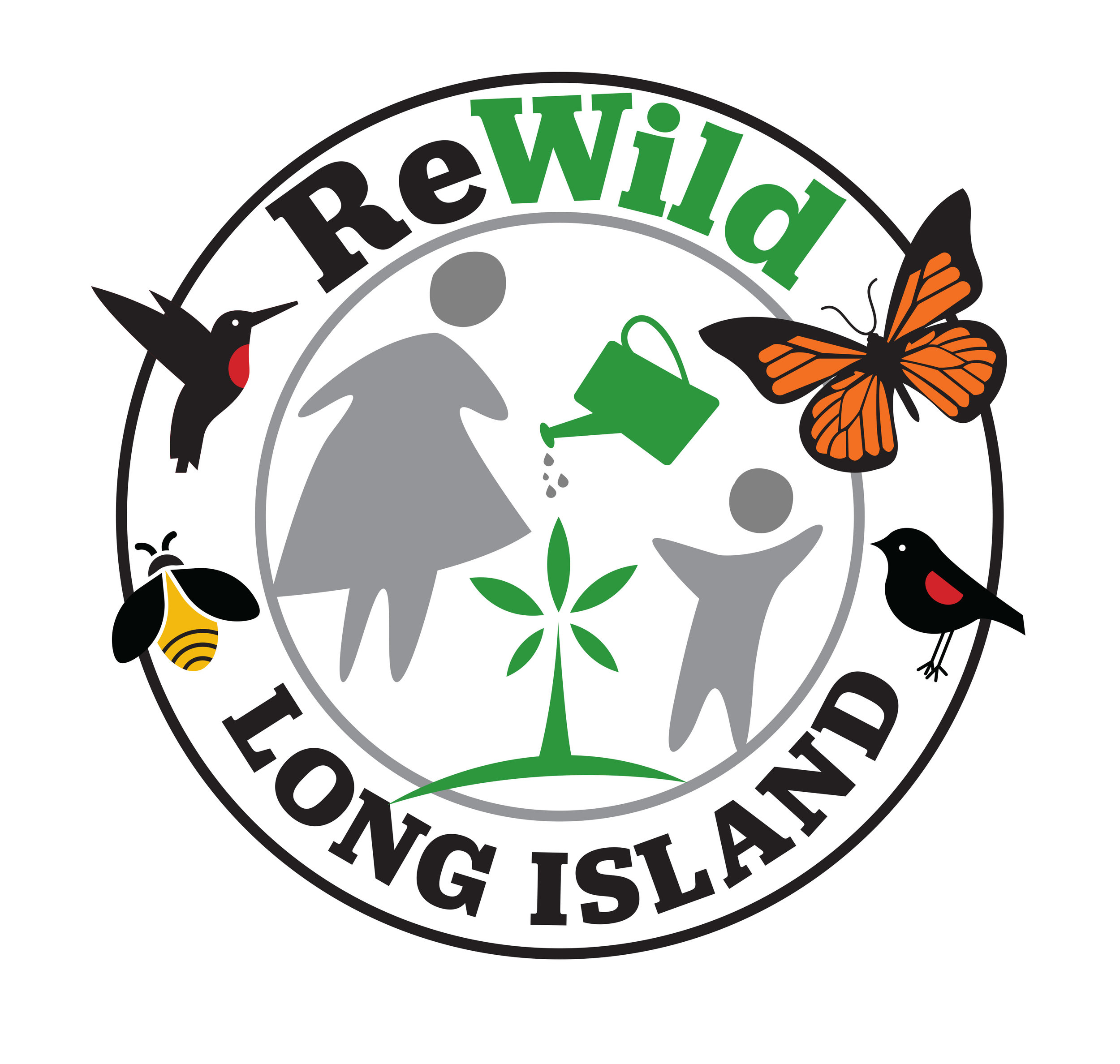A Buzzing Hub of Learning: High School East's Native Pollinator Garden🦋
Designed by HHH East students in our 2024 Youth Design Summer course.
Welcome to a vibrant corner of the High School East campus – a testament to the passion and dedication of our environmental science students. In the fall of 2024, with the support of ReWild Long Island, we began the transformation of a previously underutilized space into a thriving Native Pollinator Garden. This isn't just a collection of beautiful flowers; it's a dynamic outdoor laboratory, designed and installed by our students to explore the intricate web of life that sustains our local ecosystems. This living classroom will be used by students to explore the fascinating world of native plants and the crucial role they play in attracting and supporting our precious pollinators. Each element of this garden has been thoughtfully considered, with a focus on selecting native plant species that are not only aesthetically pleasing, but also provide vital food sources and habitat for our local pollinator populations.
For our environmental science students, this garden serves as an invaluable outdoor laboratory, offering a unique and hands-on approach to learning about complex ecological concepts. Forget dusty textbooks and static diagrams; here, learning is alive and buzzing! Students will have the opportunity to directly observe the fascinating interactions between native plants and their pollinators and witness firsthand the crucial act of pollination that underpins the reproduction of countless plant species, including many of the fruits and vegetables we rely on. The garden will also serve as a living laboratory for a broader range of environmental investigations. Students will delve into the critical aspects of water quality and runoff, analyzing how the native plant landscape can help to filter rainwater and reduce erosion. They will explore the hidden world beneath our feet, examining soil health and the vital role of organic matter in supporting plant growth.The garden will provide a unique opportunity to study the symbiotic relationships that exist between native plants and beneficial soil microorganisms, such as nitrogen-fixing bacteria and mycorrhizal fungi. These intricate partnerships are essential for nutrient uptake and overall plant health, highlighting the interconnectedness of the ecosystem.
Our students are also actively engaged in a meaningful initiative to have our Native Pollinator Garden officially certified as a "Monarch Waystation." The monarch butterfly, with its iconic orange and black wings, is facing significant population declines due to habitat loss, particularly the disappearance of milkweed, its sole host plant for larvae. By cultivating a dedicated space with various milkweed species and nectar-rich native flowers, our garden will provide crucial resources for migrating monarchs as they journey across North America. This certification will not only recognize our students' efforts but also contribute to a larger network of habitats supporting this important and beloved species.
Looking beyond the immediate educational benefits for our students, the long-term vision for this Native Pollinator Garden extends into the wider community. We aspire to transform this space into a powerful community outreach tool, a place where students can share their knowledge and passion for native plants and their pollinators with the broader Dix Hills community. Imagine workshops for local residents on how to create their own pollinator-friendly gardens, educational tours for elementary school students to witness the magic of nature firsthand, and informational signage highlighting the ecological benefits of native landscaping.
We believe that by creating a tangible example of a thriving native ecosystem within our school grounds, we can inspire a greater appreciation for the natural world and encourage others to take action in their own backyards and communities. The Native Pollinator Garden at High School East is more than just a garden; it's a symbol of our commitment to environmental education, a hub for scientific discovery, and a beacon of hope for the future of our local ecosystems. We invite you to learn more about the incredible work of our students, and perhaps even be inspired to cultivate your own patch of pollinator paradise! If you’re interested in volunteering in the garden over the months of July and August, please email Mrs. Watson at kwatson@hhh.k12.ny.us.








